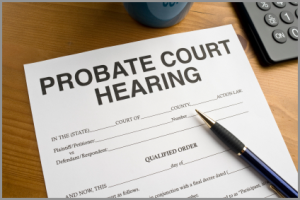 Bad debt will not just disappear. You have to take some specific action in your life to deal with it. Wishful thinking will not make bad debt go away. It will not disappear on its own and actually will just get worse if you do not do something. Interest continues to accumulate and debt collectors will hound you if you do not take action. In this post we will discuss some of the areas that people use to avoid dealing with debt situations. The bottom line is that consumers facing a debt situation must deal with their situation now to avoid foreclosure, bankruptcy and losing everything.
Bad debt will not just disappear. You have to take some specific action in your life to deal with it. Wishful thinking will not make bad debt go away. It will not disappear on its own and actually will just get worse if you do not do something. Interest continues to accumulate and debt collectors will hound you if you do not take action. In this post we will discuss some of the areas that people use to avoid dealing with debt situations. The bottom line is that consumers facing a debt situation must deal with their situation now to avoid foreclosure, bankruptcy and losing everything.
Wishful Thinking Will Not Make Bad Debt Go Away
Ignoring Your Debt
the worst thing is ignoring your debt situation. It is only going to get worse. Interest charges will add to the debt and your credit rating will get worse. A bad credit rating will make it difficult to borrow money and sometimes even get a job.
Hanging up On Debt Collectors
Debt collectors are persistent and will just continue to follow you and call. They will take action and initiate asset recovery i.e. impound your car etc. unless you talk to them and work out a plan.
Not Talking to Your Lender
Sometimes a lender can offer solutions such as a lower interest rate or a longer term. But you will never know if you do not talk to them. Be prepared to work out a plan and focus on how you will repay the loan.
Betting on the Lottery
Buying lottery tickets or going to the casino does not work. Sure we hear about the odd person winning a large sum and repaying their debt. But this is less than 1%. Use your money to repay your debt instead of buying lottery tickets.
Inheriting Money
Often the timing does not work out and the amount of money you receive is less than expected due to taxes, expenses and sharing the estate with other heirs. If you do inherit money treat it as a bonus. Focus on repaying your debt independently from any inheritance.
Making More Money
Getting a extra job is a good thing to do to help repay the loan. Counting on a promotion at work or a raise to help with your debt situation does not always work. Again focus on repaying your debt. Any extra money you earn can be used to repay the debt as well.
It will Work Itself Out
Thinking that things will just work themselves out over time usually does not work either. You have to take some direct action to deal with a debt situation. Set up a budget and stick to it. Talk to your lender and make sure they know you will repay the loan so they do not initiate some kind of collection action. Communication is very important in these situations. So is commitment to repay your debt and not ignore or run away from the situation.










